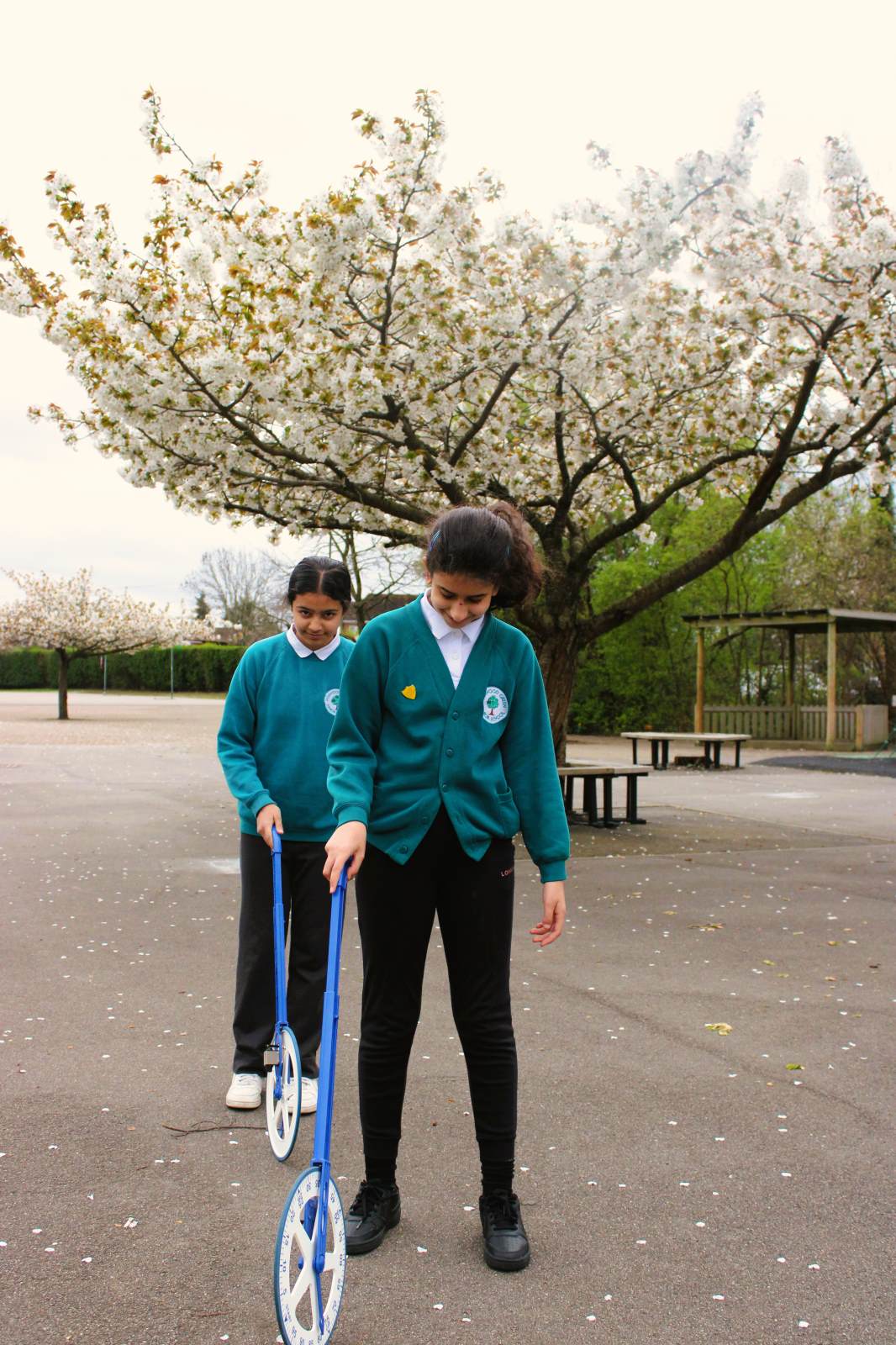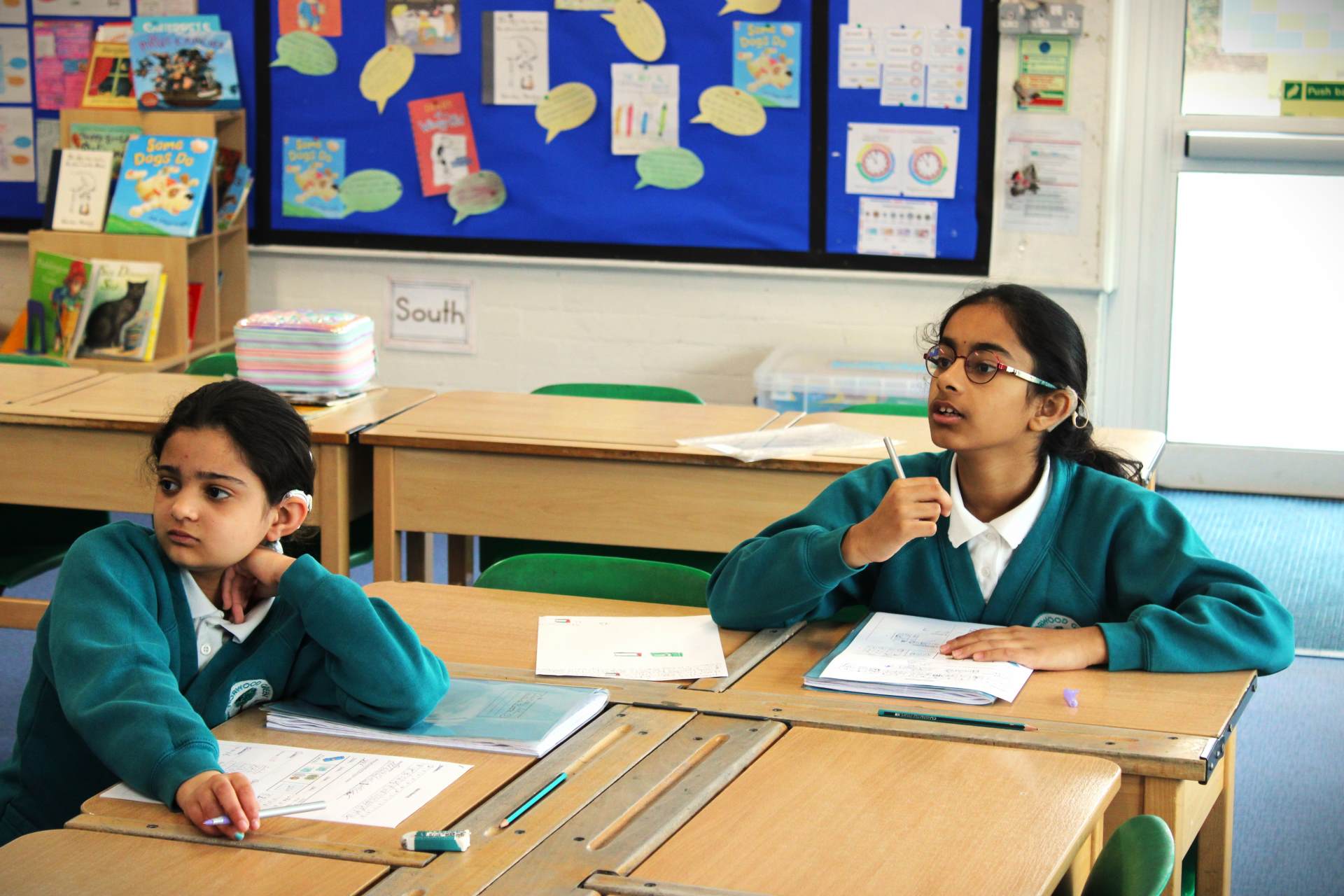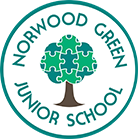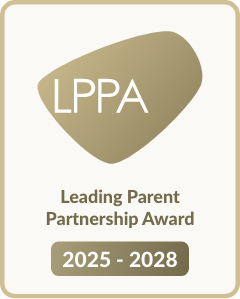Centre for the Deaf
Welcome to our Centre for the Deaf
The Centre for the Deaf at Norwood Green Junior School is proud to be the junior provision in Hounslow for deaf children with severe to profound levels of deafness. The Centre is very well established having been part of the school for over 50 years and is an integral part of the school. We also welcome deaf children from other boroughs.
Every deaf child is treated as an individual. We value their achievements, not only academically, but also in their social and emotional development. Great emphasis is placed upon giving them life skills and the confidence to succeed.



Aims:
Our Centre provides specialist support so that deaf children:
- make good educational progress through high standards of teaching and learning
- are happy at school, feel included and can fully participate in school life
- have deaf peers and develop a sense of deaf identity
- acquire skills to develop independence and responsibility in order to move successfully on to secondary school
Education:
All deaf children are members of a mainstream class, learning and playing alongside their peers. Our Centre provides flexible support which can adapt to the changing needs of each child. They can either be supported in class during mainstream lessons or taught in small groups in the Centre classrooms. Support in mainstream lessons is carefully planned with all appropriate staff to ensure successful inclusion and promotion of independent learning.
“Staff and pupils enjoy being part of a diverse community. Those from different backgrounds are respected and included. For example, pupils with special educational needs and/or disabilities (SEND) participate fully in school life. For example, pupils with hearing impairment learn and play alongside their peers.”
Ofsted – March 2020


Staffing:
Our highly experienced Teachers of the Deaf differentiate the curriculum to ensure each child is able to access it at their level. We follow a Total Communication approach meaning that we use different forms of communication such as British Sign Language, Sign Supported English and speech alongside visual and written aids.
The specialist support for our deaf pupils consists of highly qualified teachers who not only have many years of mainstream teaching experience, but who also have an additional qualification as a Teacher of the Deaf. All our Qualified Teachers of the Deaf also have a Signature accredited qualification of Level 2 British Sign Language or above.
A Speech and Language Therapist specialising in deafness visits the school weekly to provide Speech and Language Therapy onsite, according to the requirements specified in the children’s Education, Health and Care plans.
Transition:
Most of the pupils in the Centre for the Deaf transfer from Norwood Green Infant and Nursery School. Staff in the infant and junior schools work closely together to ensure continuity of provision. The Head of Centre attends Year 2 Annual Review meetings. When the infant children visit the junior school as part of their transition programme, the junior children help to welcome the infant children and introduce them to their new school. The children and staff from both Centres also enjoy going on a joint trip together in the Summer term.
Parents’ preferred options for secondary schools are discussed during Year 5 Phase Transfer Review Meetings. Many of our pupils move on to the Centre for the Deaf at Heston Community School which is also in the London Borough of Hounslow.
Equipment and facilities:
Our Centre for the Deaf encourages maximum use of residual hearing through good use of amplification devices. Our deaf children use Phonak Roger digital radio aids which are used together with the child’s hearing aids or cochlear implants for use in mainstream classes and in assemblies to allow direct access to the teacher’s voice, while reducing the impact of background noise.
We encourage the children to take responsibility for looking after their hearing aids or cochlear implants, their receivers and transmitters and to let us know if any problems occur. Teachers of the Deaf carry out daily equipment checks and are in close communication with parents and audiology clinics.
The Centre consists of two rooms for group work downstairs, an additional room upstairs and a Speech and Language Therapy room. All rooms are acoustically treated to meet the specified building requirements for teaching deaf children. The mainstream classrooms where the deaf children learn are also acoustically treated and the hall has an amplification system that is linked to the children’s radio aids.

Enrichment:
All children in the Centre take part in year group trips and events. In addition, trips are arranged specifically for the deaf pupils such as signed performances at the theatre, visits to places of interest and inter-school sporting events with deaf children from other schools. Deaf children also participate in a range of after-school clubs alongside their hearing peers, as well as deaf specific clubs run by deaf coaches from Brentford FC Community Sports Trust.
“Strengths of the school include: A strong focus on inclusion.
Children from the Centre for the Deaf are fully involved in school life.”
UNICEF Rights Respecting Schools Award Gold report – December 2021


Partnerships with parents:
Close links are maintained between Centre staff and parents. As many of the deaf children are brought to school via arranged transport, day to day contact with parents is maintained through emails, telephone calls and messages in reading records. A Coffee Morning for parents of new children in the Centre for the Deaf is held in the Autumn term. Parents are also invited to attend Parents Evenings as well as the yearly Annual Review meetings.
Entry criteria for the Centre for the Deaf:
- Age 7-11 years with an Education, Health and Care plan (EHCP)
- Hearing loss as the primary Special Educational Need (SEN)
- At least severe (71-95dB) or profound hearing loss (greater than 95dB)
- Broadly average non-verbal ability
- Broadly average social development
- A need to develop language and communication skills through specialist teaching and possibly the use of other modes of communication such as British Sign Language (BSL) or Sign Supported English (SSE)
- A need for small group tuition and special equipment, with support for its use
- A need for opportunities to learn alongside hearing peers for some of the time
Contact details:
If you have any questions about the Centre for the Deaf, please email centreforthedeaf@ngjs.hounslow.sch.uk







